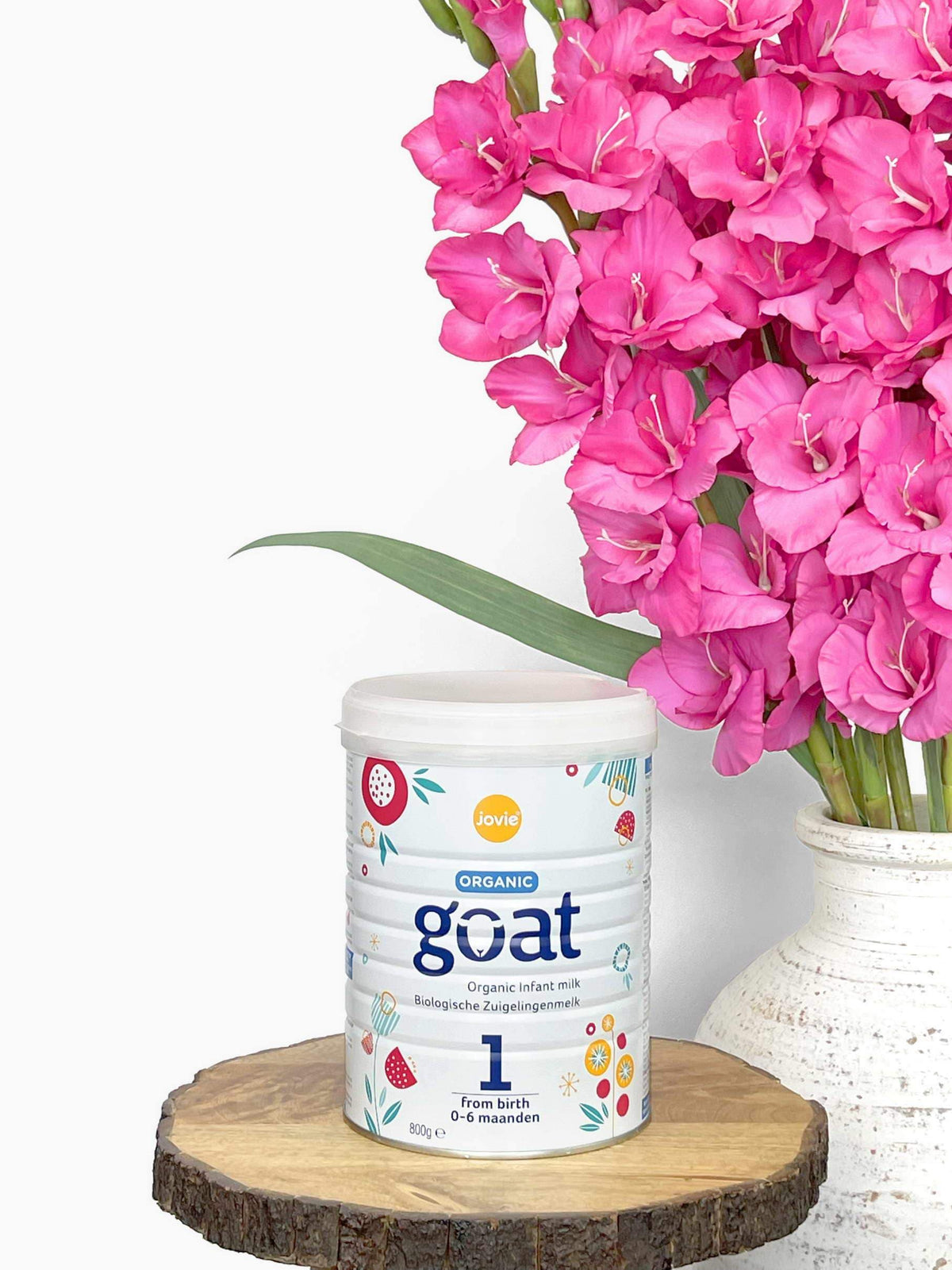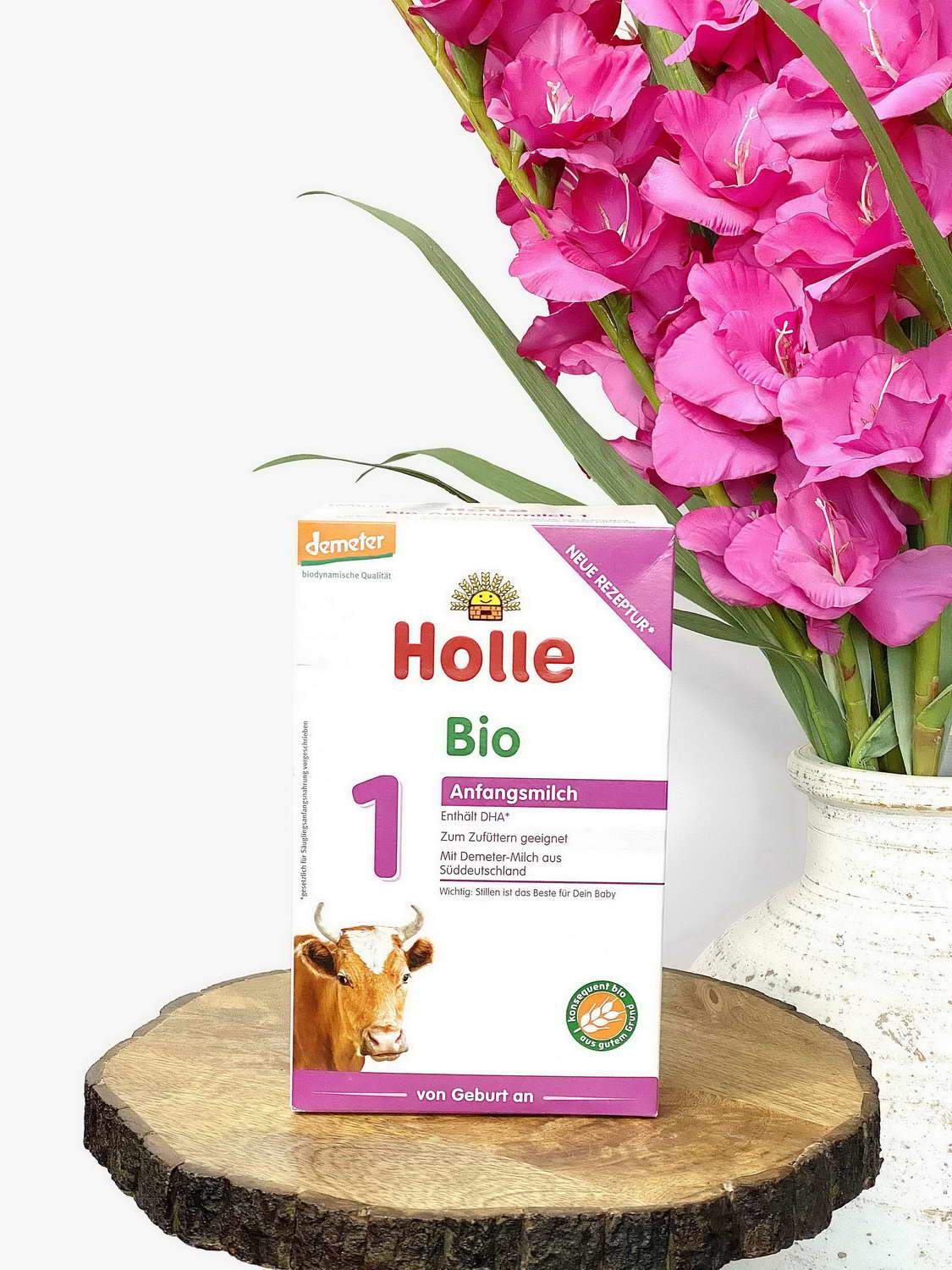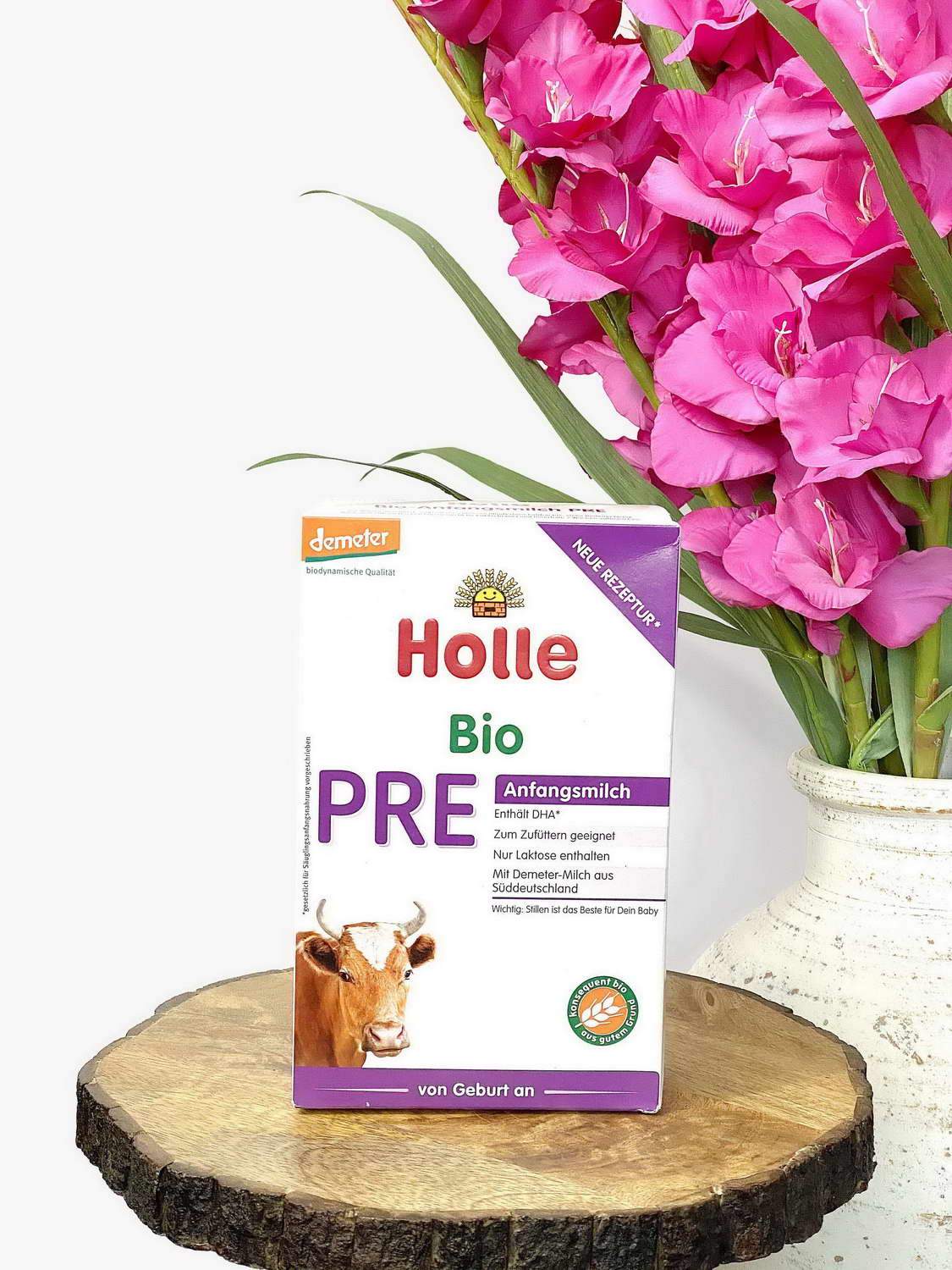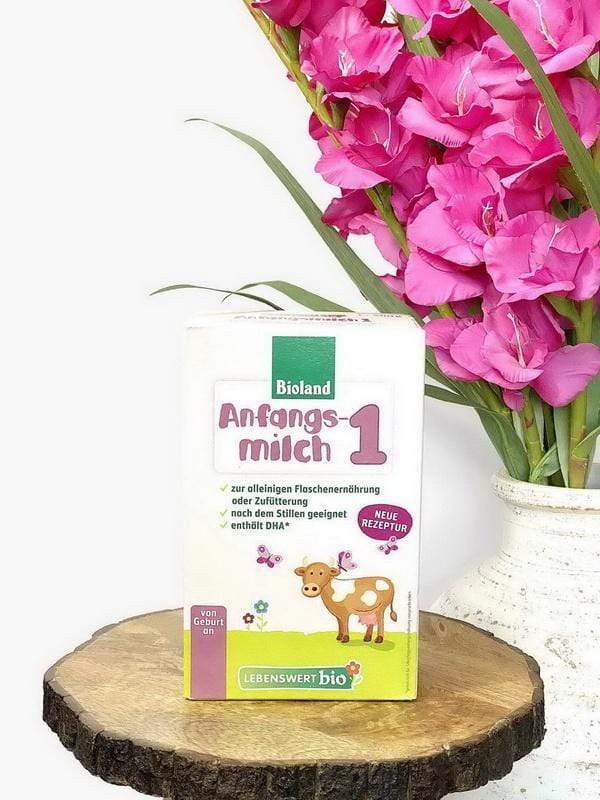When your bottle fed-baby has tummy issues the whole family can feel it. Fussing between meals, crying right after a bottle, and diaper troubles, all make for a hard day and night for everyone!
Taking a close look at all the symptoms your little one is having can help you determine the best European baby formula to fit your baby's nutritional and digestive needs.
Best Formula For Sensitive Stomach
HiPP HA Stage 1
Age: 0-6 months
Size: 600g / 21oz
Why Choose?
Hydrolyzed proteins for reduced allergic reactions, prebiotics and probiotics for easy digestion, DHA and ARA
HiPP Special Comfort
Age: 0 months +
Size: 500g / 17.63oz
Why Choose?
Hydrolyzed proteins for reduced allergic reactions, reduced lactose content, prebiotics and probiotics for easy digestion
Holle Goat Milk Stage 1
Age: 0-6 months
Size: 400g / 14oz
Why Choose?
Whole Biodynamic, Organic Certified Lactose, DHA and ARA, No Palm Oil
Lactose Intolerance or Cow's Milk Allergy
When a baby seems to be reacting badly to your current European baby formula you are probably wondering what is causing the issue.
You might think it is a cow’s milk allergy or perhaps cow's milk intolerance, these are two very different problems but, they are often used interchangeably, resulting in confusion and improper treatment.
Let’s take a look at each one and the European baby formulas that can help to ease your little ones tummy troubles.
Milk Allergy
An infant's immune system reacts negatively to the proteins in cow’s milk when there is an actual milk allergy. The baby's immune system sees the cow’s milk protein as an invader and then releases histamines and other chemicals to fight the unwanted substance.
When an infant with a cow’s milk allergy is exposed to proteins in the milk, it binds to IgE antibodies made by the immune system. This triggers the little ones immune defenses, leading to reaction symptoms that can be mild or very severe.
Allergy to cow’s milk is the most common food allergy in infants and young children. About 2.5 percent of children under three years old are allergic to milk. Nearly all infants who develop an allergy to milk do so in their first year of life.
Most children eventually outgrow their allergy to cow’s milk by the time they are around 3 years old. If young children who are allergic to fresh milk but can eat food with baked milk without reaction, they will be more likely to outgrow their milk allergy at an earlier age than young children who also react to food made with cow’s milk.
Lactose Intolerance
Involving the digestive system: milk intolerance occurs when an infant body does not make enough lactase-the enzyme needed to digest lactose.
Instead of digesting normally in your little one's stomach and small intestine, undigested lactose moves into baby's colon, where it’s broken down by bacteria and causes bloating and gas.
It can be uncomfortable for an infant, but it’s not dangerous and can be easily remedied with the right nutrition.
Signs of a Cow's Milk Allergy in Babies
Milk Allergy
Your infant may have symptoms within minutes of having cows' milk formula, in other babies problems might not happen until hours or even days afterward.
Sudden, severe symptoms are rare but it is important you know the symptoms which can include; swelling of the mouth or throat, wheezing, shortness of breath, and difficulty breathing -- a severe allergic reaction called anaphylaxis, which can also make your child feel faint or become unconscious.
If your baby shows signs of any of these please, seek medical attention immediately.
As with all allergies, if your baby has a cow’s milk allergy, please speak with a pediatrician before you make any changes to your infant’s routine eating habits.
Lactose Intolerance
Some of the symptoms of being intolerant to lactose are similar to those of a cows' milk allergy but, less severe. These may include digestion problems such as tummy aches, bloating, and gas.
Many preemies and newborns quickly outgrow lactose intolerance as immature systems develop.
Milk Allergy in Babies
Milk allergy
The best European baby formula for cow’s milk allergy is our 100% goat milk formulas. Goat’s milk does contain lactose, although goat’s milk contains a tenth less lactose than cow's milk.
Goat’s milk formula has more protein than cow’s milk and generally forms a smaller, softer, and looser curd. Due to higher protein amounts and other properties that make it easier to digest, many babies with cow’s milk allergies often do not experience the same allergy to goat’s milk.
European goat milk formulas such as Holle Organic Goat Milk provide essential fatty acids similar to breastmilk that acts as a prebiotic for easier absorption and quicker digestion. 100% organic Goat milk also contains naturally high levels of vitamin A, vitamin C, magnesium and calcium, which helps with babies growth and development.
What about soy?
When a cow’s milk protein allergy is found over-the-counter options typically include soy as the main ingredient. Known to block critical nutrients and cause hormonal changes, soy-based babies formulas should be the last resort for parents or caregivers.
Lactose intolerance
European baby formulas are known for the perfect nutrition to meet every developmental stage and digestive need and lactose intolerance is no exception.
HiPP (HA) Hypoallergenic baby formula and Hipp Special Comfort baby formula are at the top of the list for babies that are prone to food allergies and sensitive digestive systems.
As with all HiPP baby formulas they are lactose-based, but HiPP HA and HiPP Comfort use of hydrolyzed proteins, which split milk into simpler molecules, make it easier for babies’ bodies to process milk-based formula.
Both HiPP HA and HiPP Comfort have prebiotics and probiotics and HiPP Comfort has reduced lactose content furthering aid in digestion.
Both HiPP formulas contain added vitamins A, C, and D to aid in a healthy immune system and bone growth. All of this while being gluten, soy, egg, and sugar free.
Formula for Babies with Milk Allergy
Finding the perfect nutrition can be difficult when your little one is having digestive problems, so My Organic Company is here for you.
From nutrition to meet the most sensitive stomachs, to our knowledgeable customer service team and blog articles to keep you up to date with the latest in infant nutrition, we have you covered.
Please, share your experiences with others who may need advice, a smile, or just an ear of understanding in the HiPP Holle Kendamil & European Baby Formula Parent Community.
As always we are grateful to be on this journey with you and your little one.














